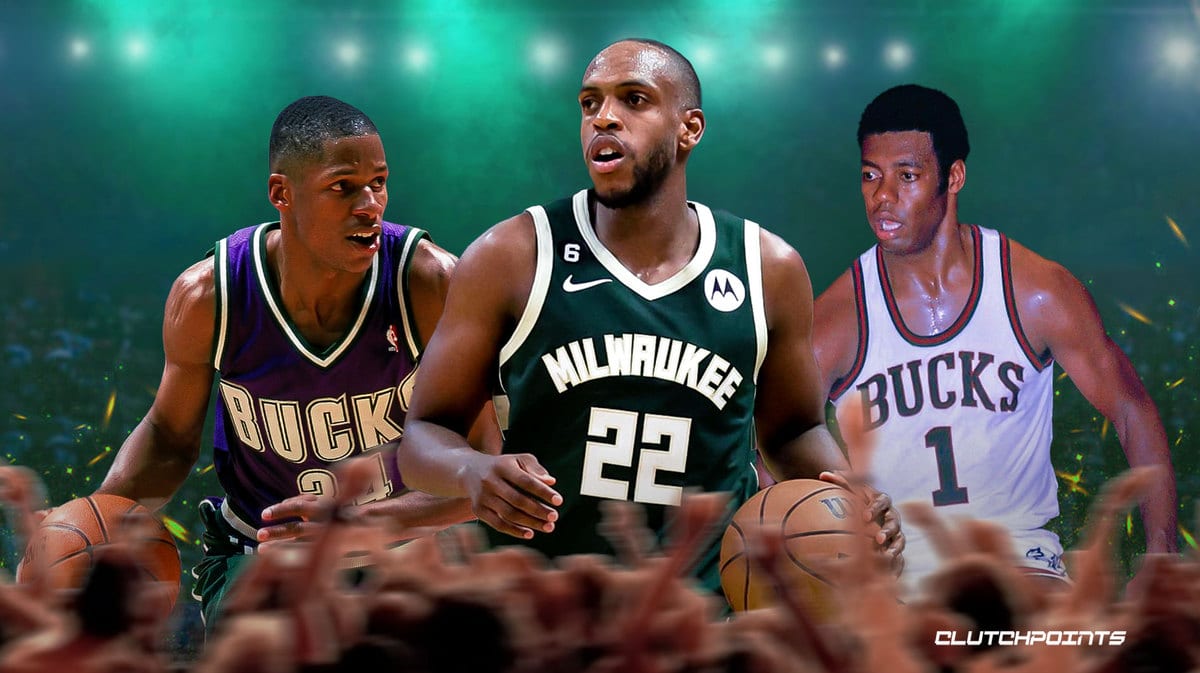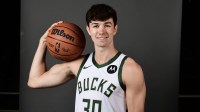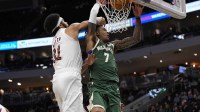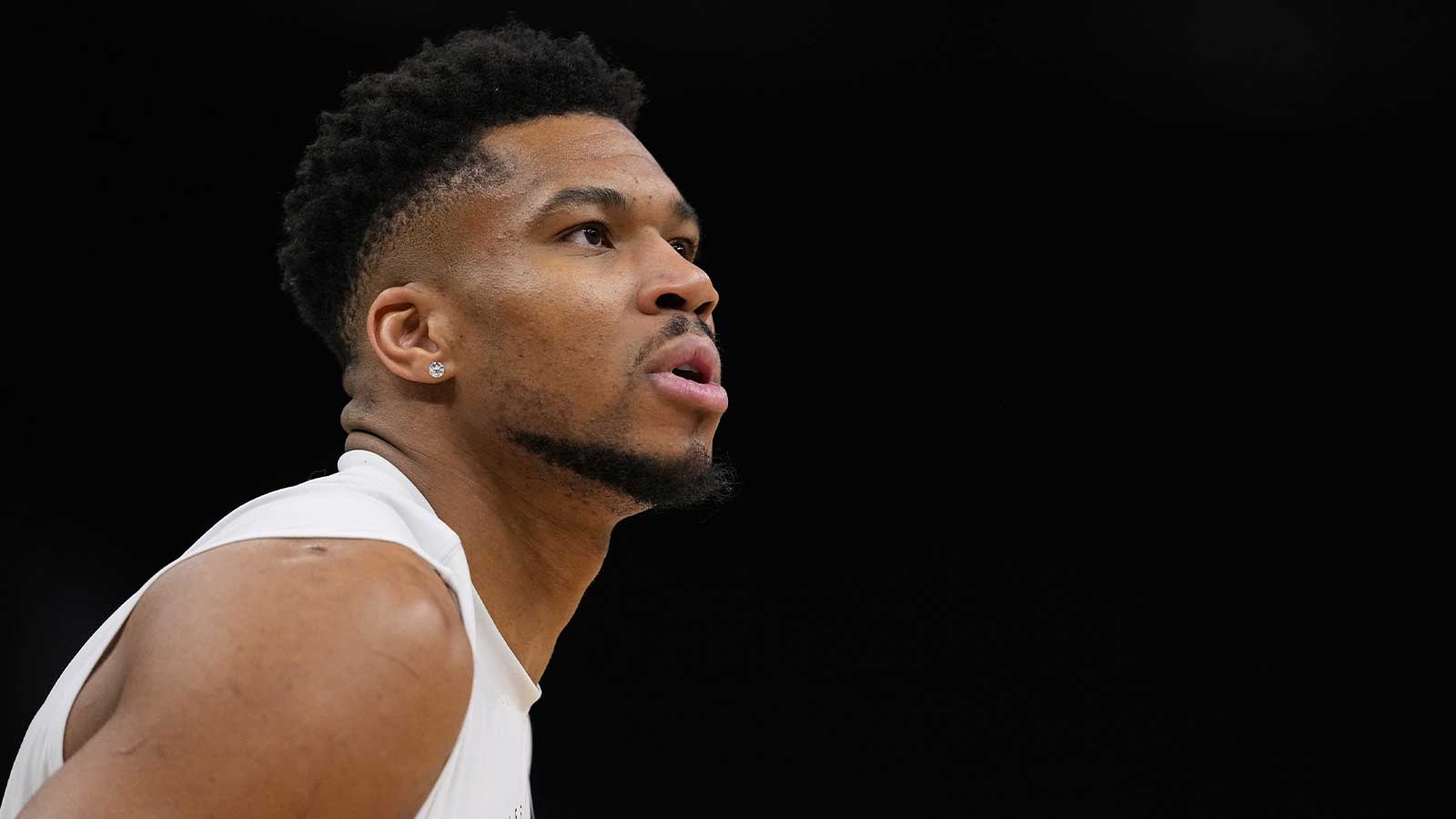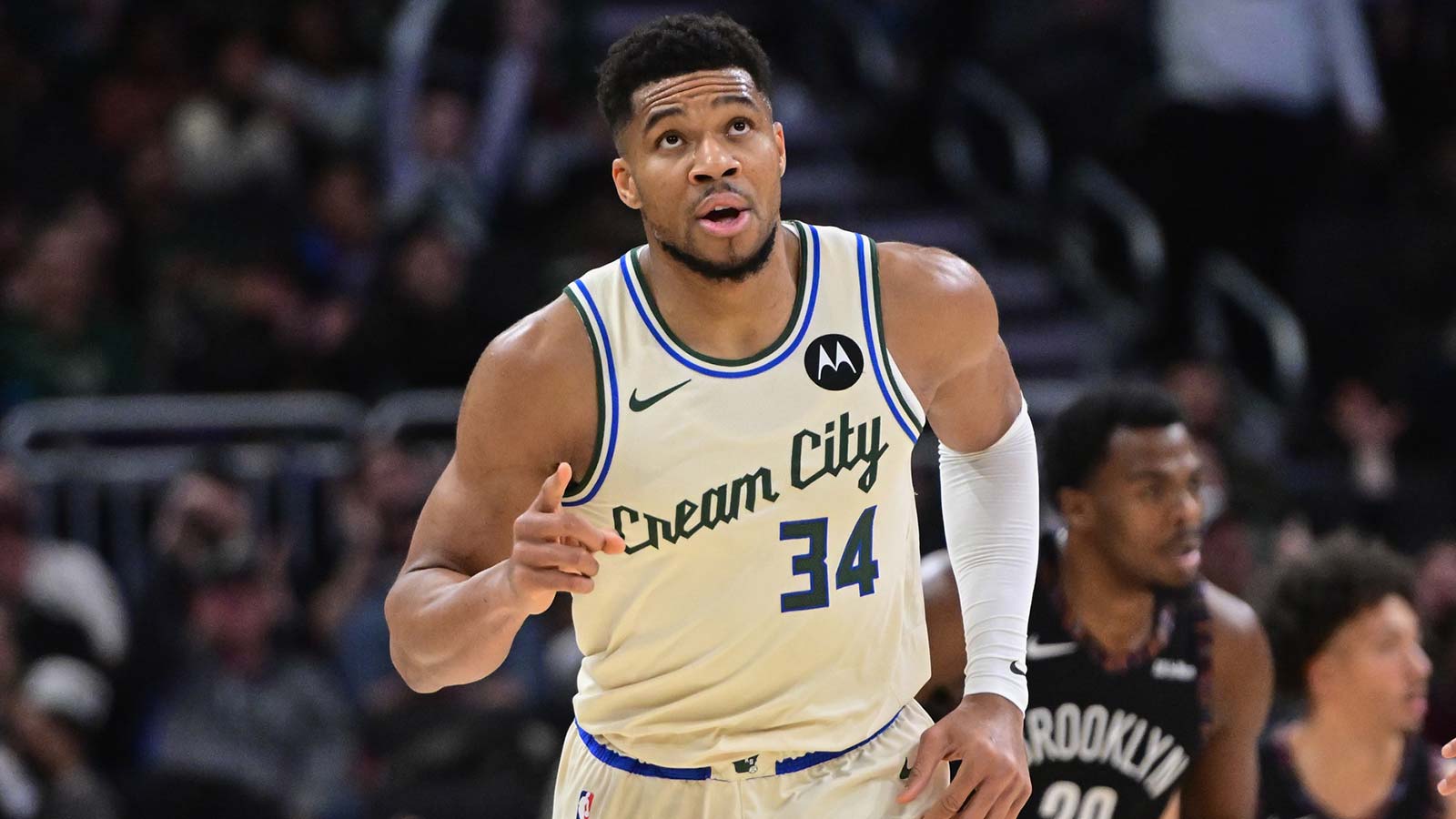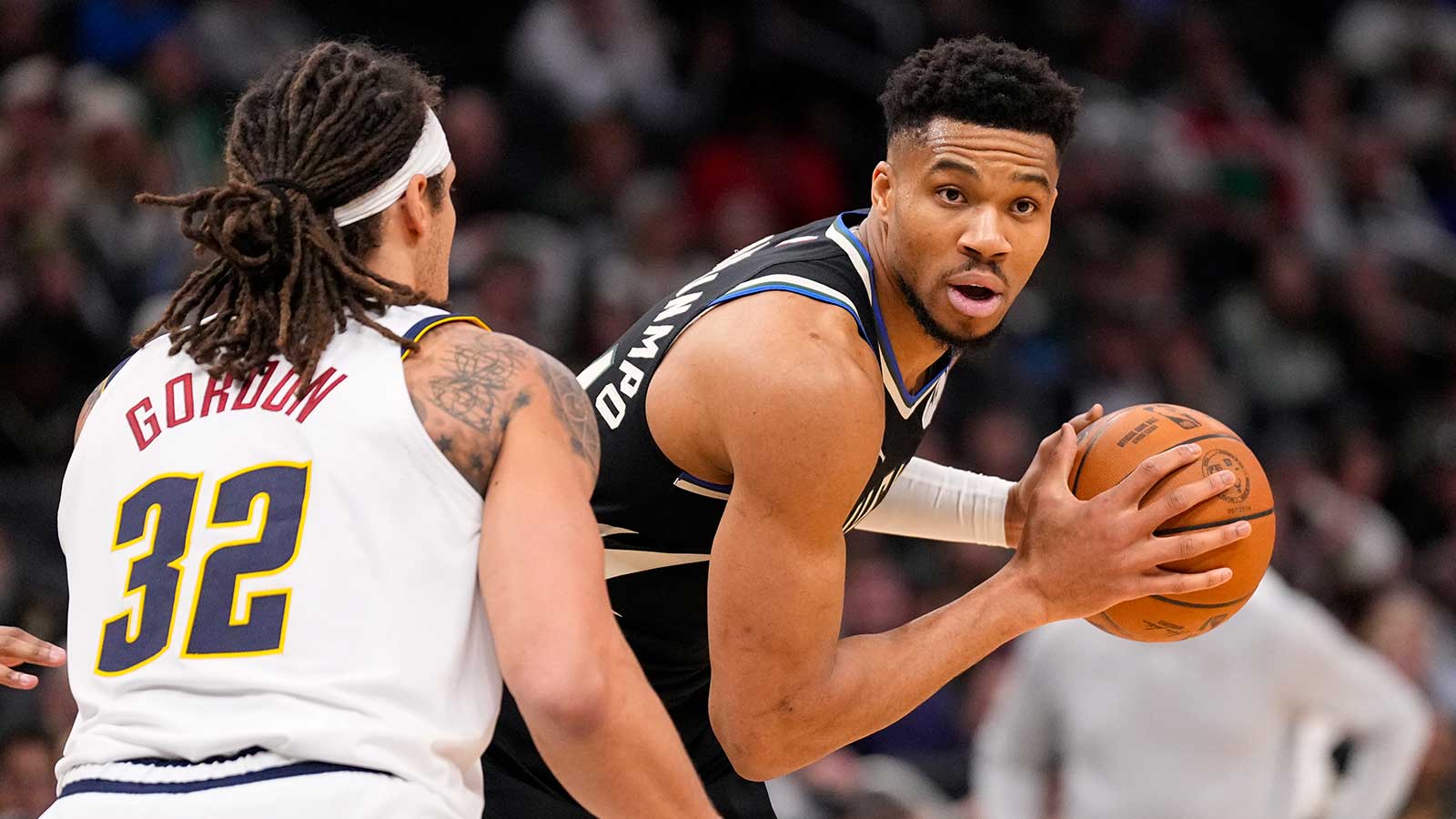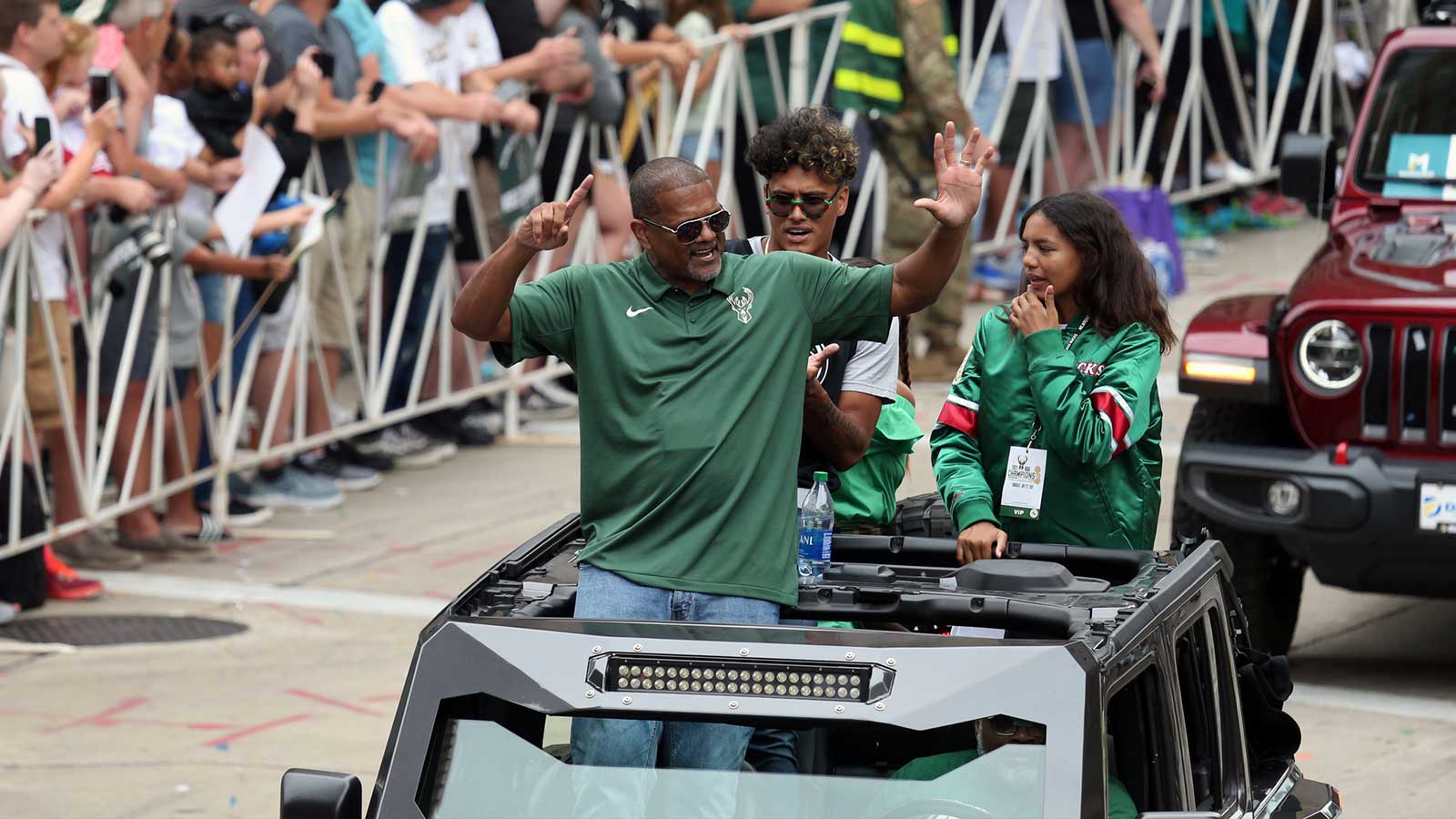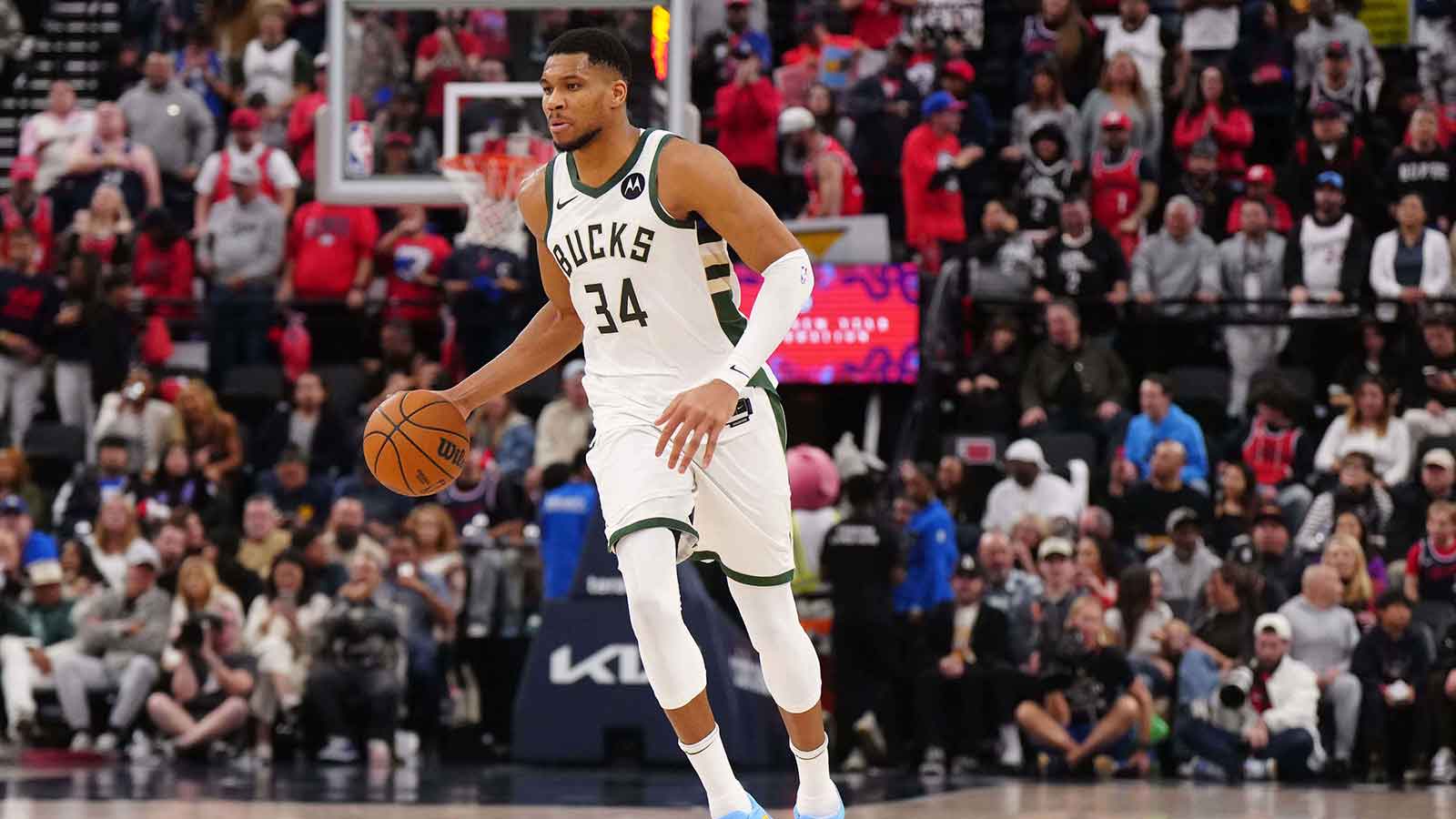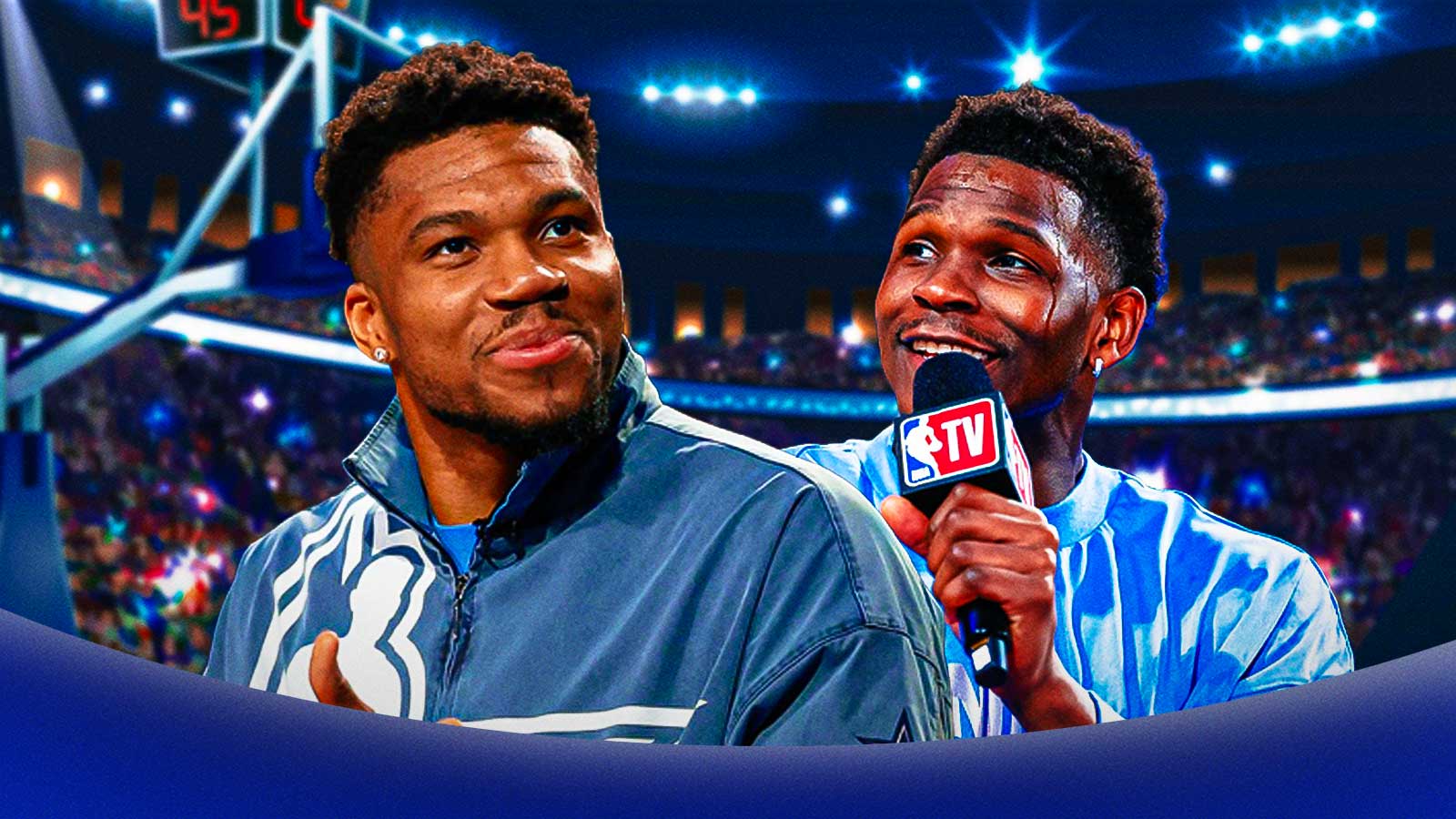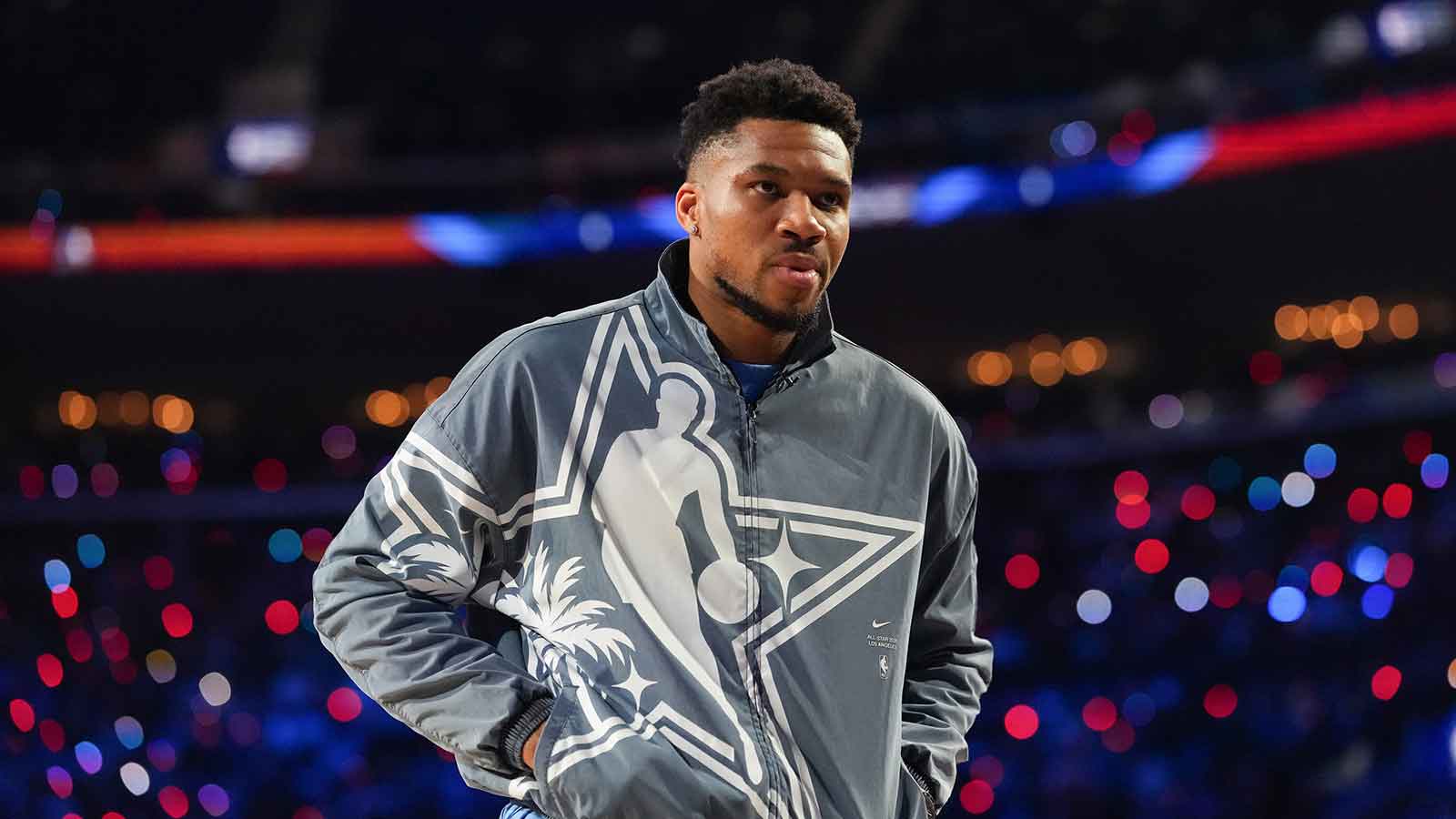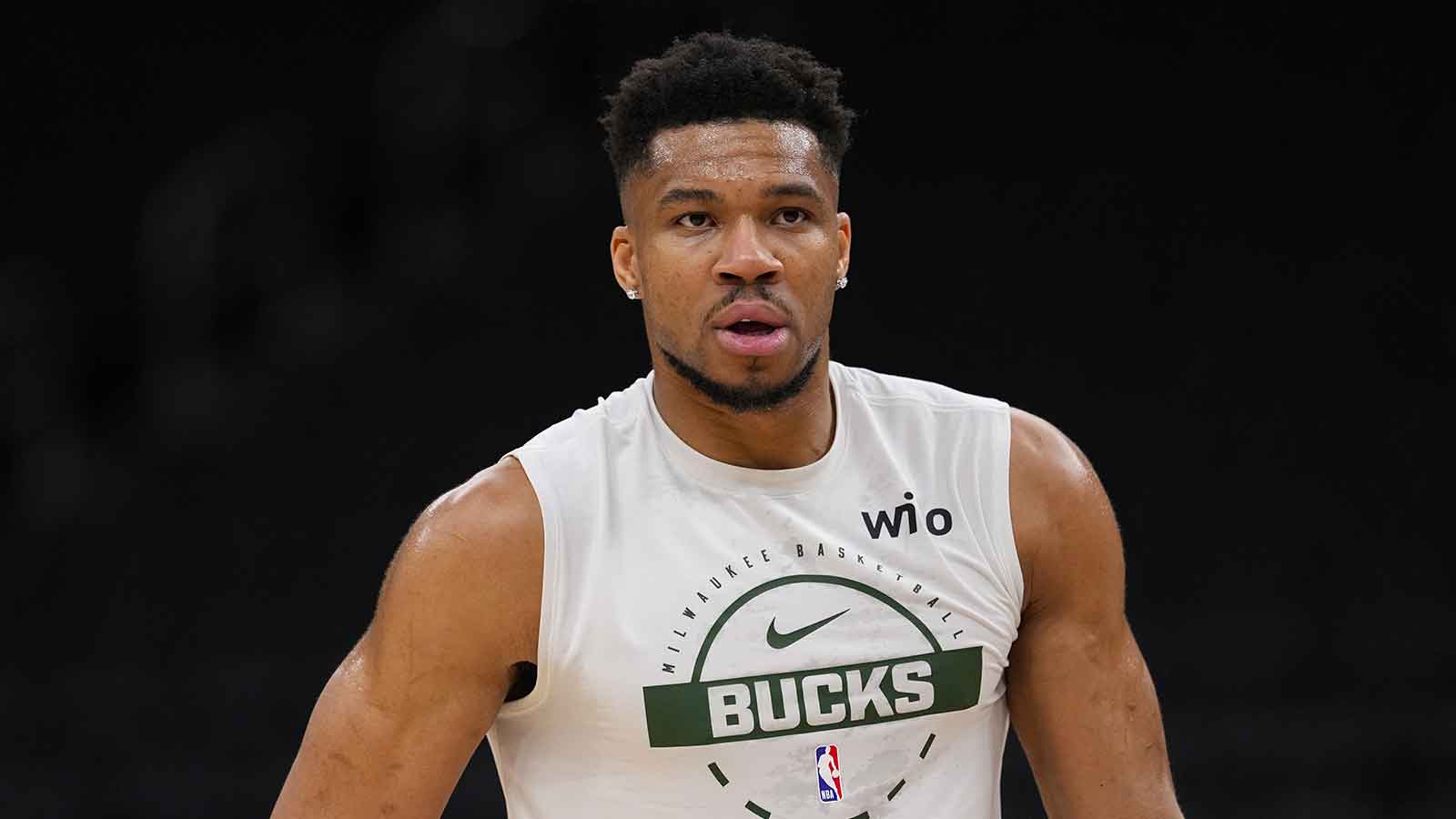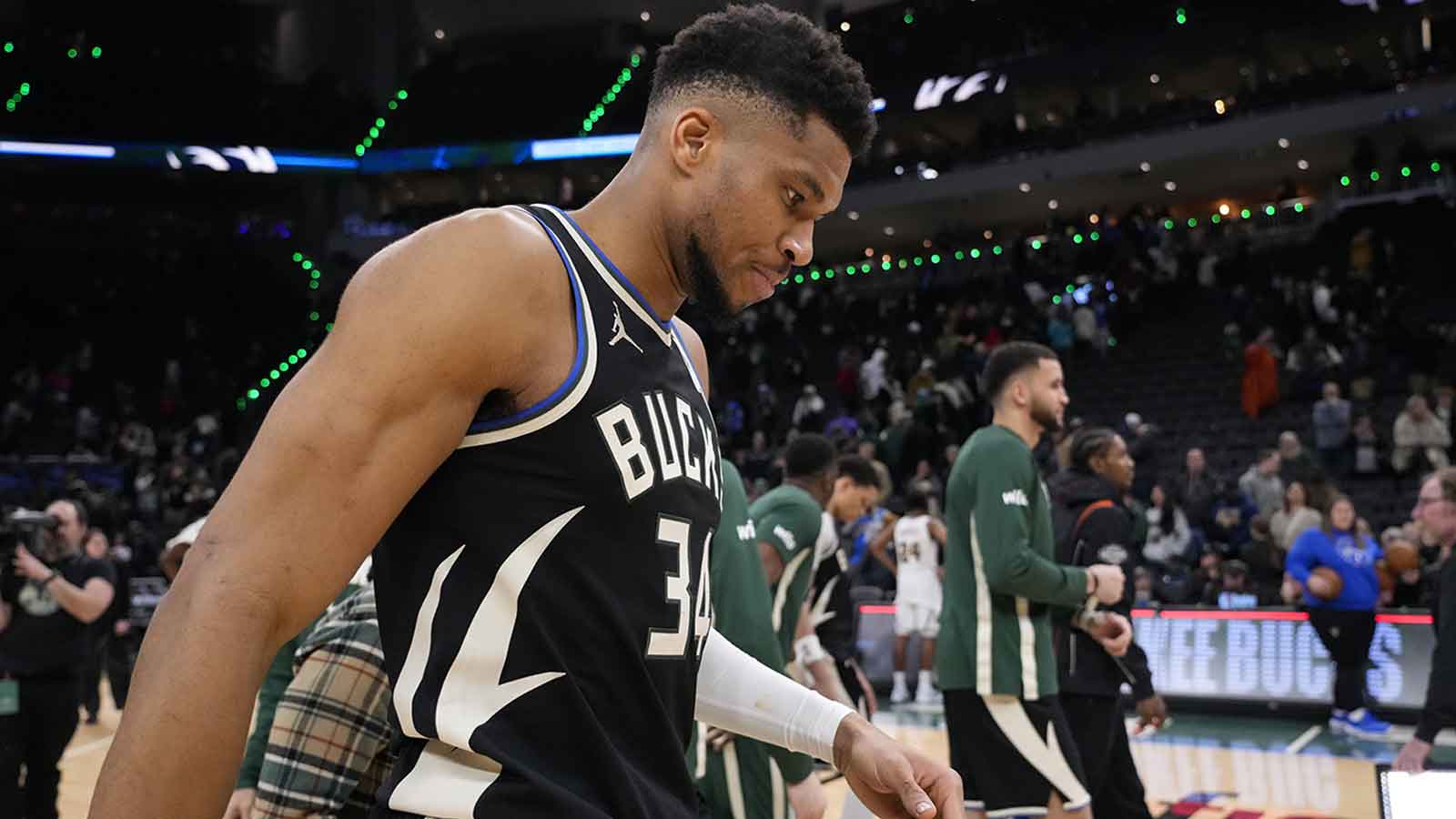The Milwaukee Bucks have a long history of trading away franchise players. It started with Kareem-Abdul Jabbar and continued more recently with the likes of Ray Allen and Glenn Robinson. Fortunately for Bucks fans, the franchise has improved its trade judgment as of late and used this newfound knowledge to become a championship contender (and eventually a winner), bringing in the likes of Khris Middleton, Jrue Holiday, and P.J. Tucker to pair with Giannis Antetokounmpo. Milwaukee has not always been on the winning side of swaps with other teams but here are the 10 best trades in Bucks history.
10 best trades in Bucks history, ranked
10) A quest for role players (2016)
The deal: Acquired Matthew Dellavedova in a sign-and-trade deal with the Cleveland Cavaliers in exchange for the draft rights to Albert Miralles
When the Bucks acquired Matthew Dellavedova from the Cleveland Cavaliers in July 2016, the franchise had gone 15 years without winning a playoff series. The Aussie, meanwhile, had just won an NBA title with the Cavs. Delly would not win a playoff series in his two years with Milwaukee, but his play on the court announced that the Bucks were a team built to stay and compete in the long run. Dellavedova brought the same effort and enthusiasm that made him a fan favorite in Cleveland, setting the foundation for the playoff runs that followed after his departure.
9) Bringing in a key playoff piece (1982)
The deal: Acquired Mickey Johnson from the Indiana Pacers for George Johnson and a second-round draft pick
The Eastern Conference in the 1980s will be remembered for the dominance of the Boston Celtics, but for much of the decade, the Milwaukee Bucks were nipping at Boston's heels. The Bucks made 11 straight playoff appearances after switching to the Eastern Conference in 1980. The core of Bob Lanier, Marques Johnson, and Junior Bridgeman led the squad to three conference finals, but the team was unable to overcome the Celtics and the Philadelphia 76ers.
An underrated member of these teams was power forward Mickey Johnson. Johnson was most well-known for his defense and dunking ability — the latter of which earned him the nickname “Rubber Band Man,” but he was also a solid offensive player. In two-plus seasons with the Bucks, he averaged 12.6 PPG and 6.2 RPG while putting up a respectable 3.1 assists per contest, helping the team reach a pair of conference semifinals.
8) A steal for Allen (2021)
The deal: Acquired Grayson Allen and cash from the Memphis Grizzles for Sam Merrill
This time, the Bucks were not the team getting fleeced in a deal involving a player named Allen. Grayson Allen has been an elite, high-volume three-point shooter in two years with the Bucks, hitting more than 40% of his shots from deep while being a double-digit scorer. Sam Merrill, on the other hand, played six games for Memphis before the Grizzlies waived him. The Bucks were the clear winner in this deal.
7) Another step toward a title (2017)
The deal: Acquired Eric Bledsoe from Phoenix in exchange for Greg Monroe and a future first and second-round draft pick
In an era where the Bucks desperately searched for a true point guard Eric Bledsoe might not have been the guy to guide Milwaukee to championship glory, but he helped take the Bucks from an underdog playoff team to two-time regular season champs in the Eastern Conference. Bledsoe succeeded the likes of Brandon Knight, Michael Carter-Williams, and Matthew Dellavedova and provided some much-needed stability and borderline All-Star-level play at the position. His name won't go down in history, but Bledsoe was one of many unsung names that elevated the Bucks to championship contention.
6) The playoff enforcer (2021)
The deal: Acquired P.J. Tucker, Rodions Kurucs, a 2021 second-round draft pick, and a 2022 first-round draft pick from the Houston Rockets in exchange for D.J. Augustin, D.J. Wilson, a 2021 first-round draft pick, and a 2023 first-round draft pick
Like the acquisition of Matthew Dellavedova a few years prior, P.J. Tucker provided the Bucks with the feisty role player necessary for winning playoff games. He averaged nearly 30 min per game in the postseason in 2020-21, starting 19 of the Bucks' 23 contests. While he contributed very little offensively (just 4.3 PPG on 4.3 shot attempts), Tucker was the heart and soul of the 2021 championship team.
Defensively, he was able to guard multiple positions on switches and he often took on the duty of guarding superstars like Kevin Durant. Tucker also brought the intangibles — leadership, veteran experience, physical toughness — qualities that cannot be measured in any statistical category. His impact may not have shown up in the box score, but P.J. Tucker was a linchpin in Milwaukee's 2021 NBA Championship team.
5) The first big three (1999)
The deal (part 1): Acquired Sam Cassell and Chris Gatling from the New Jersey Nets. Acquired Paul Grant from the Minnesota Timberwolves. Terrell Brandon traded to Minnesota, Elliott Perry traded to New Jersey. (Deal also sent Stephon Marbury from Minnesota to New Jersey)
The deal (part 2): Tim Thomas and Scott Williams acquired from the Philadelphia 76ers. Tyrone Hill and Jerald Honeycutt traded to Philadelphia.
The Bucks were a burgeoning team in the late 1990s. Ray Allen was a budding star while former number one overall pick Glenn Robinson was a quiet 2o PPG scorer. Still, the team was a few pieces away from being a real playoff contender. The first was Sam Cassell. The point guard was a key role player on the Houston Rocket teams that won back-to-back championships in 1994 and 1995 then grew into a star of his own with the New Jersey Nets. With Milwaukee, Cassell formed a”Big Three” alongside Ray Allen and Glenn Robinson — with all three capable of leading the team in scoring on any given night.
The other trade the franchise pulled off that day brought in two more players who would become unsung contributors on the 2001 Eastern Conference Finals team. Tim Thomas was a strong scoring option at the power forward position, averaging 12.2 PPG across six seasons in the purple and green, while Scott Williams was a key defensive enforcer who was notably suspended by the NBA for Game 7 of the ECF — a game the Bucks lost to the 76ers. It would take nearly two decades for Milwaukee to reach the conference finals again.
4) Winning a stacked draft (1996)
The deal: Acquired Ray Allen from Minnesota for Stephon Marbury and a future Minnesota first round draft pick.
The 1996 NBA Draft will go down as one of the deepest ever, as it featured 11 future All-Stars and five Hall of Famers. Not only were the Bucks able to select one of those Hall of Famers in Connecticut guard Ray Allen, but they were also able to get a future first-round pick.
Milwaukee's original pick from the fourth overall slot was Georgia Tech guard Stephon Marbury — who would go on to become a two-time All-Star in his own right — but he never quite contributed to winning basketball teams the way Allen did. Allen earned three All-Star selections and led the Bucks within a game of the NBA Finals in 2001. Game 7 of the 2001 ECF and Allen's subsequent trade to the Seattle Supersonics in 2003 are still sore subjects among Milwaukee basketball fans, but Ray Allen still achieved legendary status during his five years in The Good Land.
3) The Holidays come early (2020)
The deal: Acquired Jrue Holiday and a second-round pick from the New Orleans Pelicans. Bucks send Eric Bledsoe, two future first-round picks, and the right to swap two future first-round picks to New Orleans, George Hill to the Oklahoma City Thunder, and a first-round pick to the Denver Nuggets. (Deal also sent Steven Adams from Oklahoma City to New Orleans)
Even after earning the number one overall seed in the Eastern Conference two years in a row, the Bucks were still unable to advance to the number finals. Giannis Antetokounmpo and Khris Middleton formed a fearsome scoring tandem, while Brook Lopez was the three-and-d unicorn at center that other teams dreamed about, but a weakness at point guard was holding the Bucks back. Eric Bledsoe was a fine scorer and playmaker, but he was not the elite defender or go-to scorer that Milwaukee needed to win an NBA championship.
The Bucks gave up a lot to bring in New Orleans Pelicans guard Jrue Holiday, namely three first-round picks and its top two point guards, but those are the prices a franchise must pay to achieve championship glory. And it worked.
2) Big O brings home a ring (1971)
The deal: Bucks acquire Oscar Robertson from the Cincinnati Royals for Flynn Robinson and Charlie Paulk
The first major trade in franchise history, Oscar Robertson paired with Kareem Abdul-Jabbar to form one of the most feared duos in NBA history. Even though he was nearing the end of his career, Big O led the Bucks to an NBA title in his first season in Milwaukee, winning 12 of 14 playoff games and sweeping the Baltimore Bullets.
In his four years in the Cream City, Robertson averaged 16.3 PPG, 4.9 RPG, and 7.5 APG while leading the team to four straight playoff appearances. This included a second NBA Finals appearance in 1974, which the Bucks narrowly lost to the Boston Celtics in seven games.
1) Steal of the century (2013)
The deal: Acquired Brandon Knight, Khris Middleton, and Viacheslav Kravtsov from the Pistons in a sign-and-trade deal for Brandon Jennings
Three years after he scored 55 points in just his seventh career NBA game, the Bucks realized that Brandon Jennings was not their point guard of the future. Milwaukee found a willing trade partner in the lowly Detroit. Brandon Knight was the centerpiece of the Bucks' return, and he would average 17.9 PPG across two seasons with MKE, but it was Khris Middleton who would end up being the real impact player in this deal.
Middleton averaged 6.1 PPG during his rookie year in Detroit. Three years later he was averaging 18.2 PPG for the Bucks. Three years after that, Middleton was an All-Star. Eight years after the Pistons traded him away, Middleton led the Bucks to an NBA title as the team's second-leading scorer.
Brandon Jennings was a solid scorer for the Pistons, but Detroit was 55-89 with the lefty on the court and Jennings could not become an efficient enough scorer to become the type of player many thought he could be. Regardless of Jennings' performances, Khris Middleton's unexpected growth made this trade the best deal in Milwaukee Bucks history.

